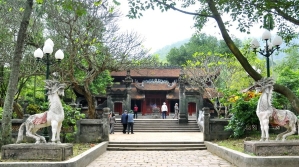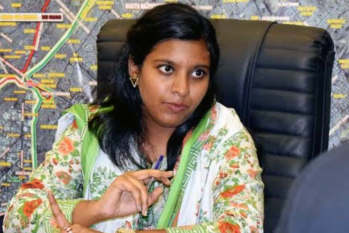
Two decades after the U.S. government designated Vietnam as Country of Particular Concern (CPC) for tolerating or engaging in religious rights violations, religious freedom has deteriorated despite the designation’s initial successes, a new report states.
Vietnam’s 2004 designation as a CPC led to a binding agreement to improve religious rights the following year, but international religious freedom (IRF) policymakers have noted “backsliding” since then, states a report this month by the U.S. Commission on International Religious Freedom (USCIRF).
“Vietnam is a challenging case for IRF policymakers as the government met nearly all conditions of the 2005 agreement,” the USCIRF report states. “Yet, inconsistencies in the application of these policies mean that religious freedom conditions have broadly deteriorated.”
The United States has maintained a strong level of discourse with Vietnamese leaders, but additional guardrails are needed to secure robust religious freedom in the country, the report states.
Vietnam’s CPC designations in 2004 and 2005 marked the only time that such an action led to a binding agreement for religious rights, according to the report. The CPC designations, combined with waivers on presidential actions such as sanctions and efforts toward the binding agreement, show how the State Department can encourage a violating government to take visible, constructive action, USCIRF notes.
Under the May 2005 binding agreement with the State Department, Vietnam committed to implement new religious rights legislation, instruct local authorities to obey the new laws and facilitate processes for religious groups to open worship venues. Vietnamese officials were also bound to reopen churches closed in the Central Highlands, outlaw forced renunciations of faith and issue guidelines to speed up registration of congregations.
USCIRF noted in 2005 and 2006 annual reports that Vietnam responded to the designation, diplomacy and engagement by international civil society organizations by releasing from prison several prominent advocates for democracy, free speech and religious freedom and issuing instructions that included prohibiting officials from forcing people to renounce their faith. The prohibitions of forced renunciations, however, did “not specify criminal penalties for those who carry out these practices.”
Vietnam also issued Decree 22, which streamlined processes for registration and obtaining permits, deadlines for official responses to applications by religious groups and, “in some cases, religious groups can expect a written explanation on why their application was denied,” according to the report.
The CPC designations offer evidence against the argument that the United States should let national interests and security concerns keep it from designating a strategically important country as a CPC, USCIRF states.
“As one interviewee who was a senior State Department official at that time noted, rather than breaking the relationship, the extensive engagement with the Vietnamese around the CPC designation and the development of the binding agreement led to deepening relational ties and mutual respect,” the report states. “The official recalled that in his subsequent engagements with other countries, he could cite Vietnam as an example of the positive outcomes of engaging with the United States and seeking substantive changes to protect religious freedom.”
Vietnam registered an unprecedented number of religious groups, and within a year of the withdrawal of CPC in 2006, the United States granted permanent normal trade relations status and approved Vietnam’s accession to the World Trade Organization.
“While these policies dramatically improved Vietnamese economic conditions, and the government made clear improvements on some religious freedom issues, USCIRF and other observers argued that the CPC withdrawal and trade normalization had been premature,” the report states. “In the years to follow, enforcement of new laws governing religion in Vietnam remained regionally uneven, while overarching rights abuses against dissenters and minorities continued.”
In its 10-year retrospective, USCIRF suggested that elements of the U.S. administration pursuing trade goals in Vietnam rushed the withdrawal of the CPC status as human rights sanctions would have undermined those goals.
“When Vietnam passed a new Law on Belief and Religion in 2016, stakeholders observed that while the law does include language on rights to freedom of religion and belief, it further entrenches the state’s firm grip on defining allowable practice and stifling dissent,” the report stated.
In 2022, the State Department placed Vietnam on its Special Watch List for the first time and repeated the designation in 2023.
Sanctions are among the actions the International Religious Freedom Act of 1998 (IRFA) calls on U.S. administrations to impose on CPCs, but Vietnam is among those countries that have been granted presidential waivers from sanctions.
Backsliding
Vietnam’s control over religious registration processes and its persecution of unregistered groups have led to continued religious rights violations, according to the report.
“Although Vietnam is a highly religiously diverse society, state authorities have frequently opposed the registration of minority religious organizations, often for perceived political reasons,” the USCIRF report states.
Groups enduring frequent legal and administrative abuses include Montagnard and Hmong Protestants, Cao Dai, Hoa Hao and Unified Buddhists, Duong Van Minh, and the Falun Gong, the report states. Lack of oversight on local authorities has created significant imbalances in how Vietnam has applied laws and regulations on religion and belief to these groups.
“Even among registered groups, state authorities have near total control over the approval and content of religious activities, gatherings, and appointment of leaders,” USCIRF reports. “Dissidents, including religious leaders, have faced harassment, physical abuse, imprisonment, and surveillance. The government’s interference has extended to the confiscation of property, closure of religious institutions, and censorship of religious materials.”
Open Doors’ 2024 World Watch List (WWL) report notes that Vietnamese officials “are not sure how to react to increased international scrutiny of their freedom of religion record.”
The 9.6 million Christians out of a population of 100 million mainly Buddhist people saw a slight decrease in pressure from families and local communities according to the 2024 WWL, with Vietnam dropping to 35th place from 25th the previous year among the 50 countries where it is most difficult to be a Christian.
“However, there has also been an increase in violent attacks on believers and church buildings, and in the number of church leaders arrested,” the WWL report notes. “But despite such intense pressure to renounce Jesus, many hold on to their newfound faith with remarkable courage.”
Protestants and converts from Buddhism or indigenous religions face intense pressure and violence for their faith, especially in the remote areas of central and northern Vietnam, according to the WWL report.
“Most believers belong to ethnic minority groups, like the Hmong, and face social exclusion, discrimination and attacks,” the report states. “Their homes are sometimes destroyed, and they are forced to leave their villages. Church meetings face constant surveillance and frequent raids.”





